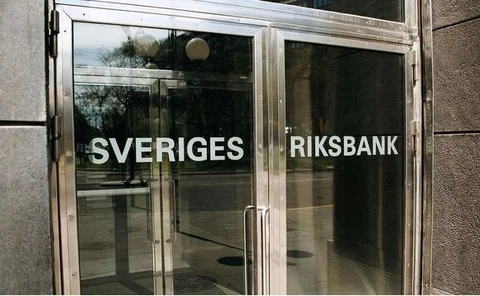Research
Weaker currency boosts Australian growth, study shows
A 10% drop in the value of the Australian dollar would boost economic growth in the country by 1% after a couple of years, RBA paper finds
Evaluation of Luxembourg paper produces ‘encouraging’ results
Research published by the Central Bank of Luxembourg finds the monthly indicator it uses to forecast GDP delivered a 'satisfactory' performance between 2007 and 2013
Colombian paper finds wholesale funding can increase financial sector fragility
Monitoring credit funding sources could provide an additional tool to warn against banking disruptions, paper shows
ECB paper sees merits in fiscal activism at ZLB
Research calls for a policy-maker who cares more about stabilising inflation, relative to government spending, than the private sector when nominal interest rates are at zero lower bound
More bank capital means banks lend more, paper finds
More capital means more credit - but greater supervisory capital constraints mean bank credit grows more slowly than when banks are less constrained
Sovereign credit ratings have asymmetric impact, ECB paper finds
Working paper finds market volatility depends on whether the rating was an upgrade or a downgrade; identifies channels of contagion between countries
Riksbank paper examines dynamics of foreign funding by Swedish banks
Study finds currency hedging needs of institutions and companies incentivise Swedish banks to issue securities in foreign currency
Slovakian economists build new framework for estimating output gap
Researchers combine a variety of methods and information sets to ‘substantially reduce’ the uncertainty of output gap estimates on a ‘policy-relevant’ horizon
Target2 'filled in' balance of payments gaps during euro crisis, NY Fed paper finds
Federal Reserve Bank of New York study finds adjustment to the pullback of private capital during the euro crisis made less harsh by Target2
ECB paper studies imbalances in major eurozone countries
Use of a new multi-country model demonstrates stimulus effects on aggregate demand from changes in interest rates at ECB-level 'are present but not overly large'
Czech paper deconstructs exchange rate variability in advanced economies
Researchers find that economic fundamentals are only responsible for a third of the medium-term exchange rate variability, although this increases when the euro is involved
Banks switch strategies way ahead of new regulation, paper finds
ECB working paper studying a set of Finnish banks finds they anticipated Basel II by up to seven years, shifting their credit portfolios in preparation for the new regulatory environment
Nature of shock explains linkages between monetary and macro-pru policies
Riksbank article studies linkages in a dynamic general equilibrium model, where macro-prudential policy is exemplified by a countercyclical capital buffer
Redistribution can boost demand but cut output, warns Fed working paper
Richmond Fed working paper points out that although taking from the rich to give to the poor can boost aggregate demand, it may also disincentivise work
Credit-strapped Canadians continued to consume in wake of crisis
Lending supply effect ensured households compensated for scarce credit by drawing down liquid assets instead, according to Bank of Canada research paper
Forward guidance ‘escape clause' increases effectiveness, says Colombian paper
Incorporating a threshold into forward guidance means central banks can change course when economic conditions dictate - meaning it is welfare-improving
Belgian paper presents new productivity indicators
Researchers from across Europe attempt to tackle the difficulty of comparing firm-level data across the continent by creating a new database of productivity indicators for Europe
Asia weathered crisis better thanks to lessons of the '90s
The Asian financial crisis of the late 1990s led the countries affected to implement policies that stood them in good stead for the global crisis of the past few years
Greek paper raises ‘red flag’ over Emu integration
Researcher from Bank of Greece analyses the impact of the Economic and Monetary Union on financial market integration by assessing its effect on capital holdings
Devaluation would not hit Albanian short-run trade balance, research suggests
Evaluation of Albanian trade with its biggest trading partners finds little evidence of the deterioration in trade balance suggested by the ‘J-curve' hypothesis
IMF statisticians create composite index of financial inclusion
A working paper outlines the design of the index and then applies it to a sample of 31 countries; Maldives comes out on top while Chad gets the wooden spoon
Wages more sticky in the US than in Japan, BoJ paper finds
The empirical fit of the New Keynesian Wage Phillips Curve is generally superior for Japan, auhors note; inflation indexation plays a key role in the US, but is less important in Japan, they add
Finnish paper finds forecast errors correlate with subjective uncertainty, not 'disagreement'
Paper analyses forecasts in the ECB's Survey of Professional Forecasters and the US Survey of Professional Forecasters to find the best predictor of errors
Policy must do more to get women and low-skilled into work, paper finds
Slovak economists analyse the elasticity of labour supply and find that changes in the tax and benefits system could entice women in particular into the workforce























